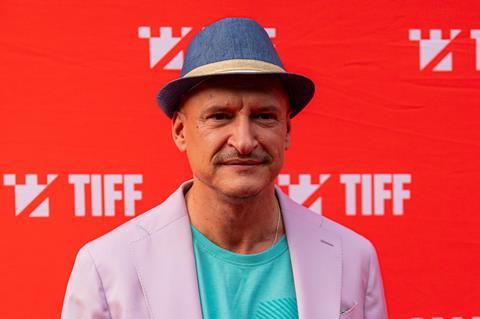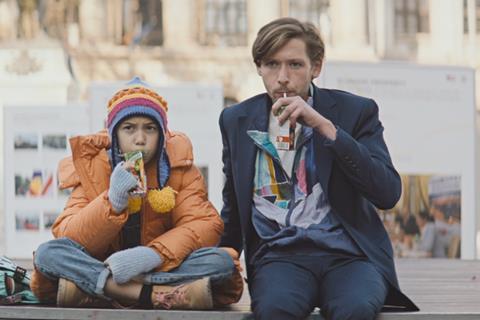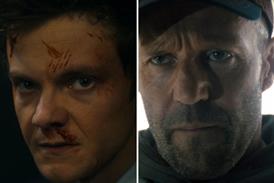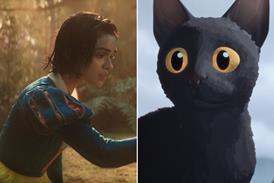
The 23rd edition of Romania’s Transilvania International Film Festival (TIFF) opens today with a gala screening of Luc Besson’s Dogman on Cluj’s Unirii Square.
Over the weekend, Italian director Daniele Lucchetti, will receive a special award for contribution to world cinema before the screening of his film Trust. He is also being celebrated in the festival’s 3x3 section.
In addition to the main competition dedicated to first and second- time directors, documentary competition What’s Up Doc, and regular sidebars Supernova, No Limit, and Full Moon, this year’s line-up includes a focus on Japanese cinema.
Transilvania’s artistic director Mihai Chirilov talks to Screen about the themes he sees in the films in the main competition, the must-see titles in the Romanian Days programme, and why he believes there is a crisis in first and second films by European filmmakers.
What are the common threads that run through this year’s main competition line-up?
Most of the films in both competitions are dealing in traditional types of storytelling as far as techniques are concerned. But the majority of the fiction films in the main competition feature unconventional, atypical characters, their reactions to social pressures, as well as the need for connection and self-affirmation.
In terms of scope, we have everything ranging from intimate dramas such as Sebástian Quebrada’s The Other Son and Anais Tellenne’s The Dreamer to unconventional melodrama like the Romanian film Where Elephants Go. We also have larger-than-life family chronicles such as Iranian filmmaker Iranian Oktay Baraheni’s The Old Bachelor and absurd black comedies in Yanqi Chen’s Day Tripper and Ernst de Geer’s The Hypnosis.
Almost half of films are dealing with very young people at a crossroads in their lives with an identity or sexuality twist such as Carolin Markowicz’s Toll and Joren Molter’s Summer Brother.
Meanwhile, in the What’s Up Doc competition we have tried from the very beginning to show mostly hybrid films that play with the conventions of the documentary format such as Adriano Valerio’s Casablanca and Robert Kolodny’s The Featherweight.
Theme wise, we aim to build an alternative reality and a refuge from dominant narratives rather than focus on the over-abundance of heavily political films selected by similar international competitions. Although we radically went for a mind-boggling one in Vita Drygas’ Danger Zone.
What did you discover about the health of international cinema while making your selection thoughout the past year?
The disturbing reality is that we didn’t find enough European films that fit what we are usually looking for. The current state of European cinema is not so rosy when it comes to first and second features. I think it has something to do with the way the projects get financed and which agendas get greenlit from the very first stages.
I don’t find the same freedom of creation and imagination as you can see in South America and now India. I almost selected three Indian films for the Main Competition, but eventually just took two [The Adamant Girl and Girls Will Be Girls].
What should the international industry look out for in Romanian Days this year?
In terms of fiction, there is a return to the past in both Andrei Cohn’s twisted story about antisemitism in Holy Week and Marian Crisan’s Warboy, a rare minimalist drama set at the end of the Second World War. Also, Romania in the heavily ideological years of the 1950s is the setting for The Moromete Family: Father and Son, the last chapter of Stere Gulea’s trilogy based on the novels by Marin Preda.

You can always rely on Radu Jude to smash the system and come up with something totally shocking and unclassifiable in Do Not Expect Too Much from the End of the World. Equally non-conformist and surprising is Where Elephants Go, the second film by Cătălin Rotaru and Gabi Șarga, a free-spirited cocktail tackling melodrama, black comedy, a film within a film.
And what Andrei Cretulescu is doing in Ext. Car. Night is also a meta film, a horror film within a film, while Alexandra Gulea’s Maia - Portrait with Hands is a hybrid between documentary and fiction that is preoccupied with the poetry of images.
Where Elephants Go features in three competitions at TIFF - as the only Romanian film in the main competition, in the Romanian Days competition and as one of the films selected by seven partner festivals for the Smart7 network’s showcase this year
This exposure is well deserved because it’s a really inventive and free-spirited film. I had proposed three films to my fellow Smart7 curators to choose from, and this one got the most votes.
How are using the extra day the festival has this year as Monday June 24 is a bank holiday in Romania?
It will give us an opportunity to reach people who don’t have to go work that day and show some of the most successful films from the festival. We will also have a special focus on films for young audiences during that day as a “teaser promotion” for a new festival called MiniTIFF which will be a rebranding of the previous EducaTIFF programme and take place in Cluj in October.
The films screening on June 24 include the animated feature Fox and Hare Save The Forest, UK director Charlotte Regan’s film Scrapper, and the Hungarian dramedy All About The Levkoviches.
























No comments yet